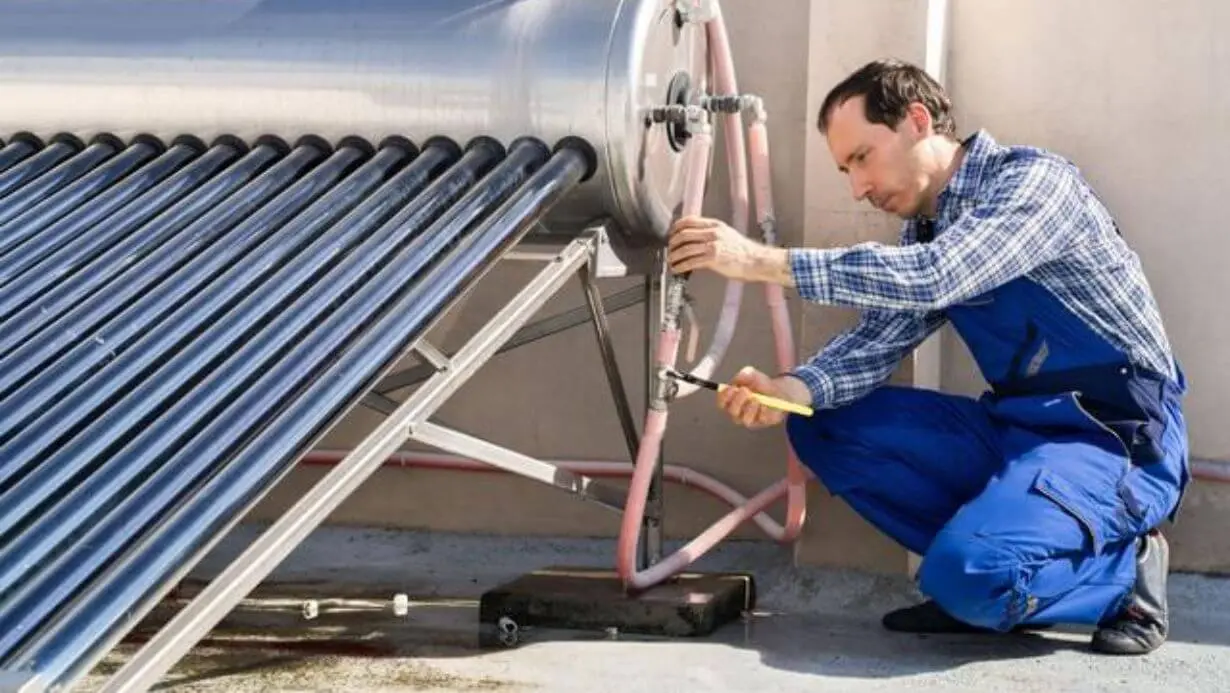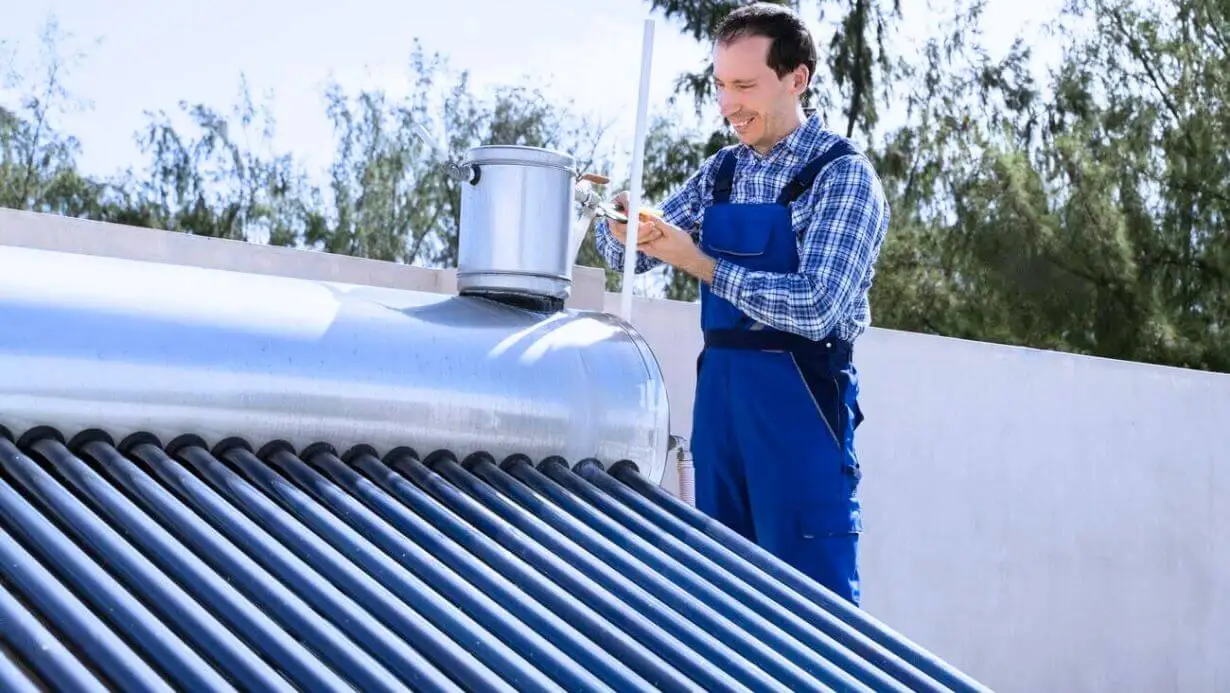Solar Water Heating System Maintenance and Repair Guide: Keeping Your System Efficient
In today’s environmentally concerned society, more and more homes are choosing solar water heating systems to lower their carbon footprint and energy expenditures. However, just like any other appliance, these systems require regular maintenance and periodic repairs to ensure peak performance. In this article, we’ll go over everything you need to know to keep your solar water heating system in good condition.
Why Solar Water Heating Systems Matter
Solar water heating systems use the sun’s energy to heat water for both home and commercial applications. Solar water heaters, as opposed to standard electric or gas water heaters, use renewable energy, making them an environmentally beneficial choice. By correctly maintaining and repairing your system, you can increase its longevity, maximize energy savings, and avoid costly repairs in the future.
Understanding Your Solar Water Heating System
Before beginning maintenance and repair work, it’s critical to understand how your solar water heating system operates. Typically, these systems include solar collectors, a heat transfer system, and a storage tank. Solar collectors capture sunlight and convert it to heat, which is then transmitted to the water in the storage tank. A circulating pump transports heated water from the collectors to the tank, where it can be used for a variety of applications.
The Importance of Regular Maintenance
Regular maintenance is critical to the performance and lifespan of your solar water heating system. By doing simple chores such as cleaning the collectors, checking for leaks, and inspecting connections, you can save minor difficulties from becoming severe problems. Furthermore, periodic maintenance can help you detect any problems early on, saving you time and money on repairs.

Common Maintenance Tasks
- Cleaning the Solar Collectors: Over time, dust, dirt, and debris can accumulate on the surface of the solar collectors, reducing their efficiency. Regularly cleaning the collectors with a soft brush or hose can help maintain optimal performance.
- Checking for Leaks: Inspect all pipes, connections, and valves for signs of leaks or corrosion. Addressing leaks promptly can prevent water damage and system malfunctions.
- Testing the Circulating Pump: Ensure that the circulating pump is functioning correctly by checking for any unusual noises or vibrations. Lubricate the pump if necessary and replace any worn-out components.
- Inspecting the Storage Tank: Check the storage tank for rust, corrosion, or sediment buildup, as these issues can affect the quality of the heated water. Flush the tank periodically to remove any accumulated debris.
- Monitoring System Performance: Keep track of your system’s performance by monitoring water temperature, pressure levels, and energy consumption. If you notice any significant fluctuations or irregularities, it may indicate underlying issues that require attention.
Troubleshooting Common Problems
Despite routine maintenance, solar water heating systems may experience unexpected problems that necessitate investigation and repair. Some frequent problems are:
- Reduced Efficiency: If your system isn’t producing enough hot water, it could be due to a variety of factors, such as dirty collectors, air bubbles in the circulation loop, or a malfunctioning pump. Inspect each component thoroughly to identify the root cause of the issue.
- Leaks or Water Damage: Leaks can occur in various parts of the system, including pipes, valves, and the storage tank. Conduct a visual inspection of all components and repair any leaks promptly to prevent water damage and system failure.
- Freeze Damage: In colder climates, freeze damage can occur if water is left in the collectors or pipes during freezing temperatures. To prevent freeze damage, ensure that your system is properly drained and insulated before the onset of winter.
- Electrical Issues: If your system relies on electrical components, such as pumps or controllers, electrical issues can arise due to faulty wiring, blown fuses, or malfunctioning sensors. Consult a qualified technician to diagnose and repair electrical problems safely.
Solar Water Heating System Maintenance and Repair Guide
Maintaining and fixing your solar water heating system does not have to be difficult or costly. With proper maintenance and regular inspections, you can keep your system functioning well for years to come. By following the advice in this guide, you can assure peak performance, energy efficiency, and cost savings for your house or business.
FAQs
It’s recommended to clean your solar collectors at least twice a year, preferably in the spring and fall. However, if you live in a dusty or polluted area, you may need to clean them more frequently.
While minor leaks can often be repaired DIY, it’s best to consult a professional for major leaks or structural damage. Attempting to repair complex issues without the necessary expertise could lead to further damage or injury.
If your system suddenly stops producing hot water, check for obvious issues like power outages or pilot light failures. If these aren’t the problem, it’s best to contact a qualified technician to diagnose and repair the issue.
With proper maintenance and care, a solar water heating system can last 20 years or more. However, individual components may require replacement or repair over time, so regular inspections are essential for maximizing longevity.
Conclusion
Investing in a solar water heating system is an excellent solution for environmentally conscious homeowners who want to minimize their carbon footprint and energy expenditures. By following the maintenance and repair recommendations in this guide, you can keep your system efficient, dependable, and cost-effective for years to come.




